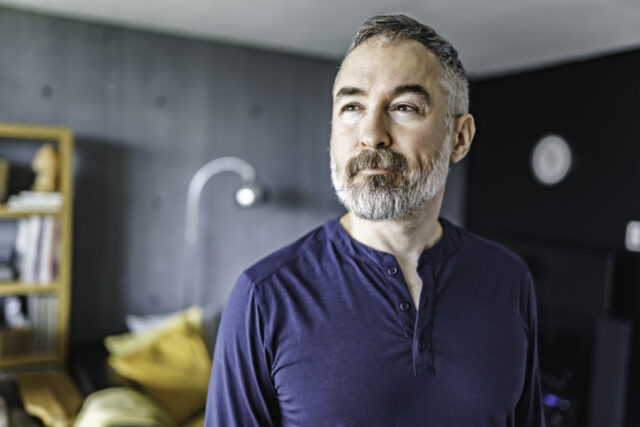Sometimes life feels harder than it should, even if you had a seemingly “normal” childhood.

If everything was fine back then, why the struggle now? You didn’t go through any major traumas. Your parents loved and supported you, there was a roof over your head and food on your table every night, and you never went without in any sense of the word. Nevertheless, you can’t help feeling like you’re crawling through mud in adult life. Here are 14 reasons you might be finding things tough — and what you can do about it.
1. You never learned how to cope with failure.

If your childhood was smooth sailing, you may not have developed the tools to deal with setbacks. When things go wrong now, it can feel like the world’s crumbling. Start small by treating mistakes like experiments — sometimes things work out, sometimes they don’t. It’s all part of learning, not a reflection of your worth.
2. You internalised unrealistic expectations.

Even if no one directly pressured you, subtle hints might’ve led you to believe you had to be perfect. Now, when things fall short, it feels like you’re letting everyone down. Give yourself permission to do things *well enough* instead of flawlessly. Imperfection isn’t failure; it’s human.
3. You had support systems that you no longer have.

As a kid, someone was probably there to catch you when things got tough — parents, teachers, or even friends. Now, it can feel like you’re on your own. Finding new support takes effort, but it’s worth it. Lean on friends, join a group, or even try therapy. You don’t have to carry everything by yourself.
4. You weren’t taught how to express tough emotions.

If things were mostly fine growing up, you might’ve learned to brush aside anything that wasn’t. Now, when frustration or sadness shows up, it might feel foreign or even wrong. Try letting those feelings out gradually — a walk, a rant to a mate, or a good cry can work wonders. Bottling it up doesn’t make you stronger.
5. You feel guilty for struggling when other people had it worse.

It’s easy to think, “I shouldn’t be complaining; other people had it harder.” But comparing struggles doesn’t make yours disappear. Just because someone else had a rougher time doesn’t mean your feelings aren’t real. Give yourself permission to feel and process what you’re going through.
6. You didn’t face challenges early on.

If life was relatively easy back then, adulthood’s curveballs can feel brutal. It’s not that you’re incapable; it’s just unfamiliar territory. Facing challenges now might feel like learning to ride a bike as an adult. Take it one wobble at a time — you’ll get the hang of it.
7. You developed a fear of disappointing people.

Growing up in a “good” environment may have made you a people-pleaser. Now, the thought of letting someone down can be paralysing. But here’s the thing: you’re allowed to prioritise yourself. Disappointing someone occasionally doesn’t make you a bad person.
8. You thought life would always be straightforward.

Childhood might’ve painted a picture of a predictable, linear life — school, job, success. Now that things are twistier, it’s disorienting. It’s okay if your path doesn’t look like you imagined. Most people’s lives are more spaghetti than straight lines.
9. You don’t know how to ask for help.

If everything was manageable back then, asking for help now can feel weird or even embarrassing. But no one’s expecting you to have it all figured out. Reaching out — even just to say, “I’m struggling” — can lighten the load. No one gets extra points for doing it solo.
10. You absorbed subtle ideas about “success”.

Maybe your childhood left you thinking success means a certain job, income, or lifestyle. If you’re not ticking those boxes, it can feel like you’re failing. But success isn’t one-size-fits-all. Redefine it based on what makes you feel fulfilled, not what looks good on paper.
11. You never learned to set boundaries.

Growing up, you might’ve been encouraged to be polite and agreeable. Now, saying “no” might feel selfish or rude. But boundaries are just you looking after yourself. Practise setting small ones, like declining plans when you’re tired. People who care about you will understand.
12. You thought happiness was a default state.

If childhood was mostly happy, you might assume you’re “supposed” to feel that way all the time. So when you don’t, it feels like something’s wrong. But happiness isn’t a permanent state — it’s more like a guest who pops by. It’s okay to feel other things too.
13. You lack a clear sense of identity.

Sometimes a “fine” childhood means you didn’t need to figure out who you really were. Now, you might feel like you’re drifting. Start exploring what genuinely interests you — hobbies, values, styles. You don’t need it all figured out at once; curiosity is a good start.
14. You didn’t develop coping strategies for stress.

If childhood was calm, adult stress might hit like a freight train. The good news is you can still learn how to manage it. Try out things like deep breathing, exercise, or creative hobbies. Everyone’s toolkit is different — find what helps you decompress.




